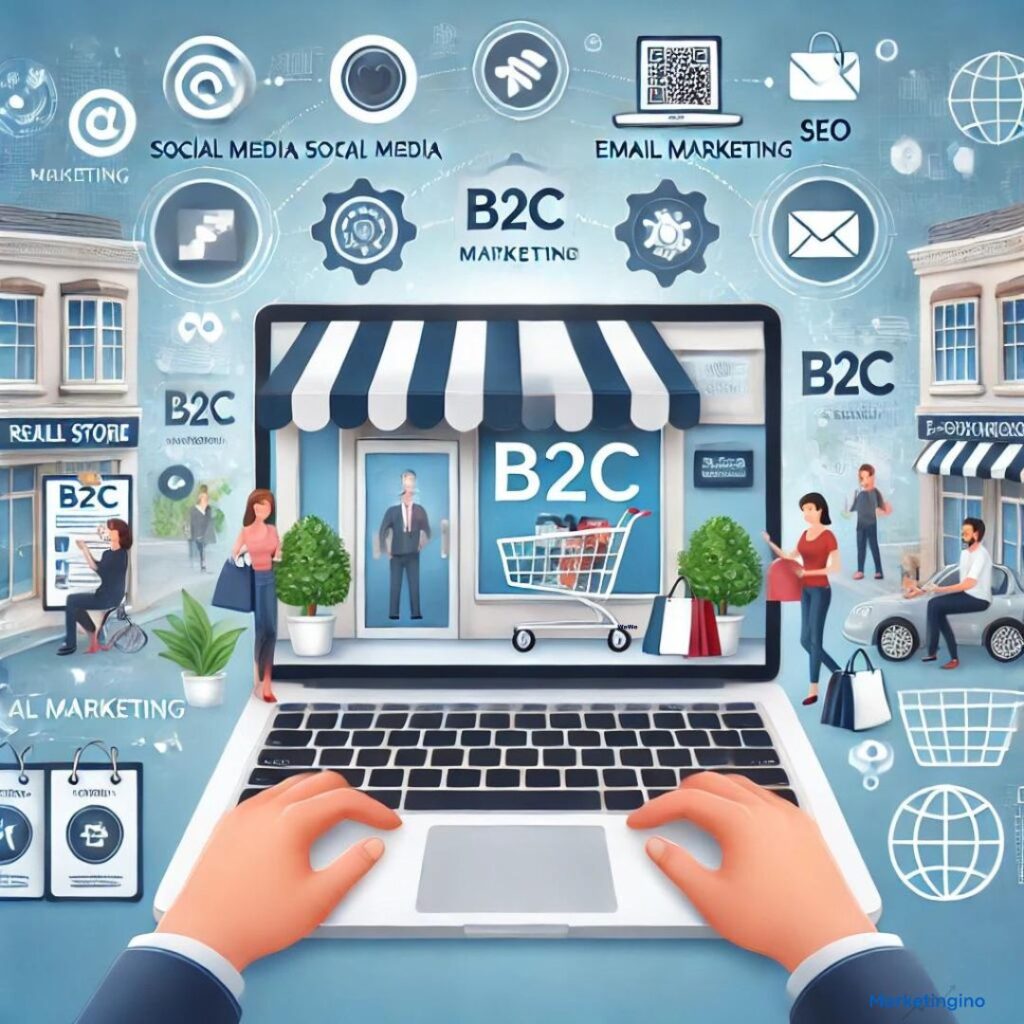In the expansive world of commerce, the direct interactions between businesses and individual consumers are fundamental to the economy. This type of transaction is known as Business-to-Consumer (B2C). B2C transactions occur when businesses sell products or services directly to individual consumers, who purchase these goods for personal use. This article explores the concept of B2C, its significance, key characteristics, and effective strategies for success.
Understanding Business-to-Consumer (B2C)
Business-to-Consumer (B2C) refers to the process where businesses engage directly with individual consumers. These transactions typically occur through retail stores, e-commerce platforms, and other direct sales channels. The primary focus of B2C marketing is to meet the needs and desires of individual customers, offering them products or services that enhance their daily lives.
Importance of B2C
- Economic Impact: B2C transactions drive consumer spending, which is a critical component of economic growth. They stimulate demand, production, and innovation across various industries.
- Brand Visibility: Engaging directly with consumers helps businesses build brand recognition and loyalty. Positive consumer experiences lead to word-of-mouth referrals and repeat purchases.
- Market Reach: B2C businesses can reach a wide audience through various channels, including physical stores, online platforms, and social media. This extensive reach allows for significant market penetration.
- Customer Feedback: Direct interactions with consumers provide valuable feedback that businesses can use to improve products, services, and customer experiences.
Key Characteristics of B2C
- Short Sales Cycles: B2C transactions typically involve shorter sales cycles compared to B2B transactions. Consumers often make purchase decisions quickly, influenced by factors like price, convenience, and brand reputation.
- Emotional Decision-Making: Consumer purchases are often driven by emotions, personal preferences, and impulsive behavior. Marketing strategies need to appeal to these emotional triggers.
- High Competition: The B2C market is highly competitive, with numerous businesses vying for the attention of consumers. Differentiation through branding, customer service, and unique value propositions is essential.
- Digital Dominance: The rise of e-commerce and digital marketing has transformed B2C transactions. Online shopping, social media, and mobile apps play a significant role in how consumers discover and purchase products.
Effective B2C Marketing Strategies
- Understand Your Audience: Conduct thorough market research to understand the demographics, preferences, and behavior of your target audience. Use this data to create detailed buyer personas.
- Content Marketing: Develop engaging and informative content that resonates with your audience. Blog posts, videos, and social media content can help build brand awareness and trust.
- Social Media Engagement: Leverage social media platforms to connect with consumers, share content, and build a community around your brand. Paid advertising on social media can also drive traffic and sales.
- Email Marketing: Implement email marketing campaigns to nurture leads, promote products, and share updates. Personalize emails to address the specific needs and interests of your subscribers.
- SEO and SEM: Optimize your website for search engines to attract organic traffic. Invest in search engine marketing (SEM) to target relevant keywords and drive paid traffic to your site.
- Influencer Partnerships: Collaborate with influencers who can promote your products to their followers. Influencers can enhance brand credibility and reach a wider audience.
- Customer Service Excellence: Provide exceptional customer service to ensure positive experiences. Responsive and helpful support can lead to higher customer satisfaction and loyalty.
- Promotions and Discounts: Offer promotions, discounts, and special deals to attract new customers and encourage repeat purchases. Limited-time offers can create a sense of urgency.
Business-to-Consumer (B2C) transactions are a cornerstone of the retail and e-commerce industries, driving economic growth and innovation. By understanding the unique characteristics of B2C commerce and implementing effective marketing strategies, businesses can connect with individual consumers, build brand loyalty, and achieve long-term success. In the fast-paced and competitive B2C landscape, focusing on customer experience, leveraging digital tools, and staying attuned to consumer trends are key to thriving in the market.


